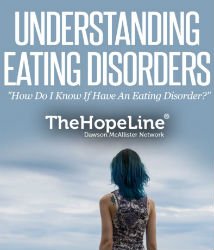Cultural Impacts on Binge Eating in New Zealand Cuisine
The role of culture is pivotal in shaping the food landscape of New Zealand, influencing various eating behaviors, including binge eating. Traditional Māori cuisine, diverse immigrant influences, and contemporary fast food trends contribute to a complex relationship with food, where emotional eating often intertwines with cultural practices. This dynamic can lead to the phenomenon of hidden eating habits, where individuals consume food in secret, driven by emotional distress or societal pressures.
In New Zealand, binge eating disorder is a significant but often overlooked issue, with many grappling with the stigma surrounding these hidden eating habits. Understanding this context is crucial for addressing the complexities of binge eating behaviors, as highlighted in resources like The Hidden Epidemic in New Zealand. By exploring the cultural influences on food consumption and the associated mental health implications, we can better comprehend the challenges faced by those experiencing this disorder.
The Cultural Significance of Food in New Zealand
The diverse cultural landscape of New Zealand significantly shapes its food practices, creating a rich tapestry of culinary traditions. The Māori, as the indigenous people of New Zealand, have a profound influence on the country’s food culture. Traditional Māori practices emphasize communal eating, sharing kai (food), and valuing the connection between food and the land. This cultural reverence for food can lead to heightened awareness of eating habits, but it can also contribute to hidden eating habits where individuals may consume food in secrecy or isolation, especially when under emotional distress.
In modern New Zealand society, migration has introduced a multitude of cuisines, each with unique eating patterns. The fusion of these cultures can sometimes create an environment where binge eating behaviors flourish. For instance, the availability of diverse, often high-calorie foods can lead individuals to indulge excessively, especially in social settings. Understanding this cultural significance is crucial, as it reveals the fine line between enjoying traditional foods and developing unhealthy eating habits. For more insights into managing these behaviors, visit Eating Disorders New Zealand.
The Impact of Social Gatherings on Eating Behaviors
Social gatherings are integral to New Zealand culture, whether they are family barbecues, community events, or holiday celebrations. These occasions often center around food, which can create an environment ripe for overeating. The pressure to indulge in the plethora of available dishes can lead to binge eating, especially when individuals feel compelled to partake in everything offered.
Moreover, hidden eating habits may emerge as individuals feel embarrassed about their food choices in public settings. For instance, someone may choose to binge eat in private after feeling pressured to maintain a certain image during a social event. It’s essential to recognize how these communal customs can inadvertently promote unhealthy eating behaviors. Encouraging open conversations about food choices and promoting healthier alternatives during gatherings can help mitigate binge eating tendencies.
The Role of Media and Advertising in Shaping Food Choices
Media and advertising play a significant role in shaping perceptions of food in New Zealand. The proliferation of food-related content, from cooking shows to social media influencers, creates an idealized image of food consumption that often glorifies excess. This can lead to unrealistic expectations about food and body image, contributing to binge eating behaviors.
The constant exposure to idealized food images can trigger hidden eating habits, where individuals consume large quantities of food in private to cope with feelings of inadequacy or dissatisfaction. It is crucial for New Zealanders to cultivate a critical eye towards media portrayals of food and to focus on mindful eating practices. Encouraging discussions around media literacy can help demystify these influences and promote healthier relationships with food. For support in navigating these challenges, consider resources from Eating Disorders New Zealand.
Food Accessibility and Its Influence on Eating Patterns
New Zealand’s food landscape is characterized by a variety of food options, ranging from fresh produce markets to fast-food chains. This accessibility can be a double-edged sword. While it promotes diversity in food choices, it can also lead to unhealthy eating patterns, including binge eating. The convenience of fast food and processed snacks may encourage impulsive eating behaviors, particularly when individuals are stressed or busy.
Hidden eating habits often develop in response to the pressures of daily life, where individuals may resort to quick, unhealthy food options in private, away from the scrutiny of others. Promoting access to healthier food options and educating the public about the benefits of whole foods can help combat these tendencies. Community initiatives that focus on food education and accessibility can make a significant difference in fostering healthier eating behaviors across New Zealand.
The Influence of Cultural Identity on Eating Behaviors
Cultural identity plays a pivotal role in influencing eating behaviors in New Zealand. For many, food is a means of expressing cultural heritage and maintaining connections to one’s roots. However, the pressure to conform to societal norms around body image and diet can create internal conflicts, leading to binge eating as a coping mechanism.
Individuals may feel torn between traditional eating practices and modern dietary trends, resulting in hidden eating habits where they indulge in binge eating to reconcile these conflicting identities. Encouraging individuals to embrace their cultural food traditions while also acknowledging the importance of balance and moderation is essential. Community workshops that celebrate cultural heritage through food can promote healthier relationships with eating.
The Psychological Aspects of Binge Eating in New Zealand
The psychological factors surrounding binge eating are complex and multifaceted. In New Zealand, issues such as stress, anxiety, and social pressures can contribute to unhealthy eating patterns. Many people may turn to food as a source of comfort, leading to episodes of binge eating, often in secret. This reliance on food for emotional support can create a cycle of guilt and shame, further exacerbating hidden eating habits.
Addressing the psychological aspects of binge eating requires a holistic approach that includes mental health support. Resources such as Eating Disorders New Zealand provide valuable assistance for those struggling with these issues. Promoting awareness of mental health and fostering environments where individuals feel safe to discuss their struggles can help break the cycle of binge eating.
Strategies for Promoting Healthy Eating in New Zealand
To combat binge eating behaviors influenced by New Zealand’s food landscape, it is vital to implement effective strategies that promote healthy eating. Education on nutrition and the importance of mindful eating can empower individuals to make conscious choices about their food consumption. Schools, workplaces, and community organizations can play a pivotal role in facilitating workshops and programs that focus on healthy eating.
Additionally, creating supportive environments that encourage open discussions about eating habits can help individuals feel less isolated in their struggles. By addressing hidden eating habits and encouraging healthier food choices, New Zealand can foster a culture of well-being that prioritizes mental and physical health. Engaging with local resources such as Eating Disorders New Zealand can provide individuals and communities with the necessary tools to create positive change in their eating behaviors.
FAQs
What is the connection between New Zealand’s food culture and binge eating behaviors?
New Zealand’s food culture, characterized by its diverse influences and emphasis on communal dining, can significantly impact eating behaviors. The availability of rich, indulgent foods during social gatherings may lead to binge eating, as individuals might find it challenging to moderate their intake in such settings.
How do hidden eating habits contribute to binge eating in New Zealand?
Hidden eating habits, such as snacking in secret or consuming food while distracted, can exacerbate binge eating tendencies. In New Zealand’s food landscape, where convenience foods are readily available, individuals may find themselves engaging in these habits, leading to a cycle of overeating without awareness.
Are there specific cultural practices in New Zealand that promote binge eating?
Cultural practices such as potlucks and barbecues encourage abundance and sharing of food, which can inadvertently promote binge eating. The emphasis on enjoying food together may lead individuals to consume more than they usually would, often without realizing it.
What role does emotional eating play in New Zealand’s food culture?
Emotional eating is prevalent in many cultures, including New Zealand’s, where food is often used to cope with stress, celebrate occasions, or seek comfort. This reliance on food for emotional regulation can lead to binge eating, particularly when combined with hidden eating habits.
How can awareness of hidden eating habits help reduce binge eating?
By becoming more aware of hidden eating habits, individuals can identify triggers and patterns that lead to binge eating. Mindful eating practices, such as paying attention to portion sizes and savoring each bite, can help mitigate the effects of these habits and promote healthier behaviors.
What strategies can be employed to address binge eating in the context of New Zealand’s food landscape?
Strategies such as fostering open conversations about food, promoting healthy eating environments, and encouraging mindful eating can be effective. Additionally, addressing hidden eating habits through self-reflection and awareness can empower individuals to make more conscious food choices.
Are there any resources available for those struggling with binge eating in New Zealand?
Yes, several resources are available for individuals struggling with binge eating in New Zealand, including counseling services, support groups, and educational programs focused on nutrition and mindful eating. Organizations such as the New Zealand Association of Counsellors and Eating Disorders Association provide guidance and support for those in need.
References
- Eating Disorders Association of New Zealand – A comprehensive resource offering support and information on eating disorders, including binge eating, with a focus on cultural influences in New Zealand.
- New Zealand Ministry of Health – Understanding Eating Disorders – Provides insights into eating disorders in New Zealand, emphasizing the societal and cultural factors that contribute to these issues.
- Te Ara Encyclopedia of New Zealand – Food and Drink – This resource explores the cultural significance of food in New Zealand, including how traditional and contemporary practices influence eating behaviors.
- Beyond Blue – Eating Disorders – An Australian mental health organization that discusses the impact of cultural norms on eating behaviors and provides resources for those struggling with binge eating.
- National Institutes of Health – Cultural Influences on Eating Disorders – A scholarly article examining how cultural factors shape eating behaviors and the prevalence of eating disorders, including binge eating, in various populations, including New Zealanders.








Recent Comments